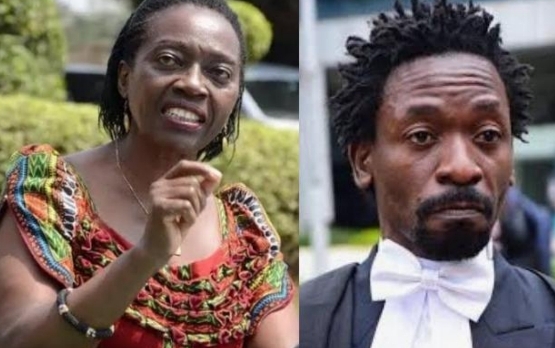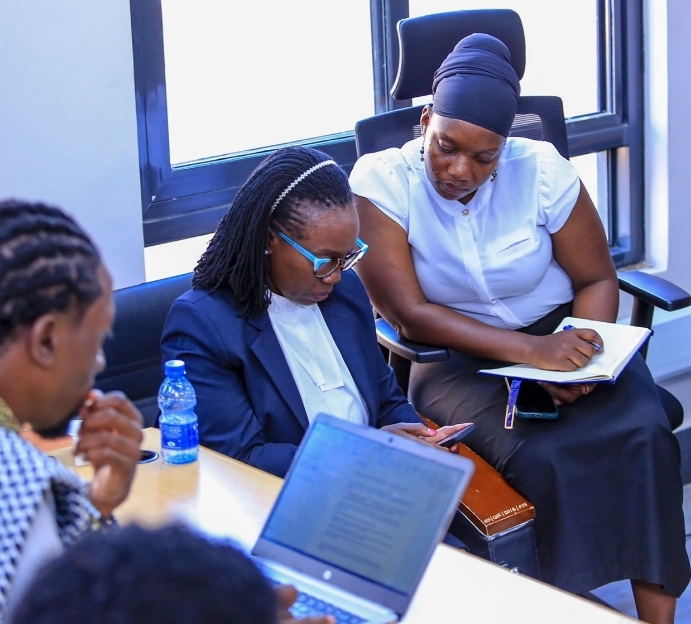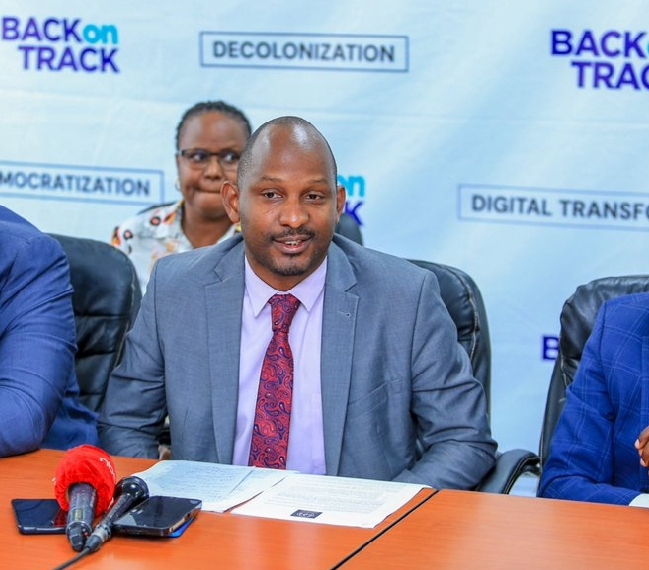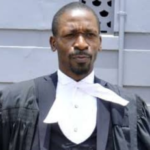The Uganda Law Society (ULS) has recalled their two representatives from the Judicial Service Commission on grounds that they have been there illegally since they were last elected about nine years ago.
According to Executive Order Number Two issued by ULS President Isaac Ssemakadde, the representatives include Norah Matovu Winyi and Ruth Sebantindira who was once a ULS President.
The Order indicates that all individuals who were appointed as ULS Representatives to the Judicial Service Commission and other statutory bodies without being elected according to the provisions of the ULS Elections Regulations of 2016 are all hereby recalled.
“This directive applies with immediate effect to Ms Ruth Sebantindira and Norah Matovu Winyi who have been unconstitutionally and unlawfully holding out as ULS nominees to the JSC since 2016, and all such appointees except for those currently representing the ULS at the Law Council”, reads the Order.
The Order indicates that on February 2nd 2024, the High Court delivered a Judgement declaring that the current practice of appointing ULS Representatives to statutory bodies without holding elections was a breach of the 1956 Uganda Law Society Act and the ULS Elections Regulations 2016.
The decision issued by Civil Division Judge Boniface Wamala followed a successful petition filed by one of the members of ULS City Lawyer Steven Kalali against his professional association(ULS).
But ULS Council then led by Bernard Oundo appealed against the order. However, ULS through Ssemakadde on Tuesday indicated that they shall immediately withdraw the notice of appeal they had filed and communicate this recall directive to the relevant statutory bodies and to the individuals concerned.
The ULS contends that they are committed to upholding the rule of law, promoting democratic principles within the organization and advocating for a just and accountable Judiciary.
That they also recognize the need to uphold the integrity and credibility of the Judicial Service Commission and ensure that appointments to the bench are based on merit, equality, transparency and accountability.
“Whereas the ULS is deeply concerned about the recent trend of Judicial recruitments that have disregarded these principles, leading to widespread public dissatisfaction and undermining confidence in the Judiciary “, reads the order.
According to ULS, this decision is to bolster internal democracy, commencing radical surgery of the Judiciary and halting what they describe as unfair judicial recruitments.
As such, the Order indicates that by Section 15 of the ULS Act, the ULS Council shall not later than December 31st 2024 convene an extraordinary general meeting to elect ULS Representatives to the Judicial Service Commission and for all other statutory bodies save the representatives of the Law council who were duly elected.
“The Council shall provide all necessary support and necessary guidance to the Elections Committee to ensure that the aforementioned elections are conducted in a fair, transparent and accountable manner consistent with the provisions of the regulations and all relevant laws”,
The lawyers further stated that they shall launch a comprehensive campaign to advocate for a radical surgery of the Judiciary and JSC to emphasise merit-based appointments, transparency and accountability and equal representation.
That they shall also have a final say in the suitability of candidates for Judicial Officers because they know them better.
They have further appealed to the President, Parliament and JSC to review any recent appointments that have violated these principles and to take appropriate corrective action including revoking such appointments.
The July 10th, 2023 Lawyer Steven Kalali’s petition which has brought these people trouble identified 34 statutory bodies where ULS holds representation, including the Judicial Service Commission, Anti-Pornographic Control Committee, and Media Council, among others. Kalali told the Judge that the then ULS leadership had sidestepped elections for these positions since the implementation of the 2016 General Election Regulations which was an infringement upon members’ rights, including freedom of expression, which he said was both unlawful and lacking transparency. This he noted was because ULS is a body of legal professionals and custodians of the law.
He noted that some representatives” on the various Statutory Bodies like Senior Sebatindira, and Matovu on Judicial Service Commission, as well as others on other bodies, have been on or held offices for many years without according to other members of the society chance to per take the same, which he noted that clearly outlaws democratic principles of good governance and rule of law or transparency/accountability.
He said that some individuals have held these positions for an extended period without affording others the opportunity, which contradicts principles of good governance, the rule of law, and transparency.
Kalali contends that representatives should be elected or nominated with the approval of the respective class they represent, and ULS cannot act on behalf of members without their consent.
However the ULS then led by Oundo said that there are a total of about 34 statutory bodies that require representatives on their board, making it financially burdensome to conduct elections for each society representative and organizing an election within a limited time frame at the General Assembly is unfeasible.
This is the second radical decision to be made by ULS President Ssemakadde in a spate of less than a month. Ssemakadde first suspended the representatives of the bar to the ULS Council the Attorney General and Solicitor General.
****
URN
![]()



























